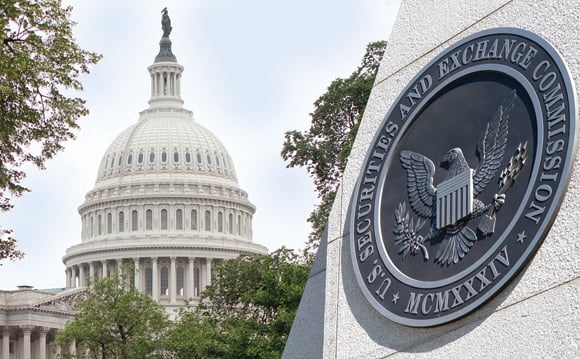Charges leveled by long-time employee at the Commission
U.S. Senator Charles Grassley asked the Securities and Exchange Commission to answer allegations that the agency destroyed files from initial investigations of firms including Goldman Sachs Group Inc., SAC Capital Advisors LP and Bernard Madoff Investment Securities LLC.
Grassley, the top Republican on the Senate Judiciary Committee, made the request in a letter to SEC Chairman Mary Schapiro dated yesterday, citing claims by an agency employee that more than 9,000 such files have been purged. The Iowa lawmaker asked Schapiro to explain whether the SEC routinely destroys documents related to so-called matters under investigation that don't progress beyond the initial phase.
“It doesn't make sense that an agency responsible for investigations would want to get rid of potential evidence,” Grassley said in a statement. “If these charges are true, the agency needs to explain why it destroyed documents, how many documents it destroyed over what timeframe, and to what extent its actions were consistent with the law.”
Grassley said his request was prompted by a letter from Darcy Flynn, a 13-year SEC employee who claimed the agency destroyed documents including materials related to Goldman Sachs' trades of American International Group Inc. credit- default swaps in 2009, insider-trading probes of Deutsche Bank AG, Lehman Brothers Holdings Inc. and SAC Capital Advisors LP, and investigations of possible financial fraud at Wells Fargo & Co. and Bank of America Corp. in 2007 and 2008.
SEC Records
“As a general matter, not every document that comes into an agency's possession in the course of its work must be retained,” John Nester, an SEC spokesman, said in a statement yesterday, declining to respond specifically to Grassley's letter. “We do keep records of our MUI's and they're available to our investigators to learn about previous work on matters that have been reviewed.”
The SEC amended its case-closing guidelines last year after being questioned by the National Archives and Records Administration, Nester said. The changes clarify that SEC documents should be kept or disposed of in accordance with the agency's records management policies, he said.
MUI's typically include documents such as newspaper clippings, brokerage account statements with personal information and notes from internal interviews, Nester said.
Privacy Concerns
Such documents may not need to be catalogued since they are available electronically, and others may be inappropriate for the agency to retain because of privacy concerns for individuals not under formal investigation, according to Peter Henning, a former SEC attorney who is now a securities law professor at Wayne State University Law School in Detroit.
“It would only really be of concern if there were no record of an investigation having taken place,” Henning said. “Investigations don't necessarily start with a voluminous file -- it may come from a newspaper story. The SEC drills a lot of dry holes.”
Some of the firms Grassley named have been the subject of SEC sanctions resulting from other investigations. Goldman Sachs paid $550 million last year over claims that it misled investors in a mortgage-linked security. Bank of America paid $150 million to resolve allegations that it failed to tell investors about bonuses slated for Merrill Lynch & Co. executives before acquiring the Wall Street brokerage in 2009. Madoff is serving a 150-year federal prison term after pleading guilty to running a Ponzi scheme.
Spokesmen Michael DuVally of Goldman Sachs, John Gallagher of Deutsche Bank, Lawrence Grayson of Bank of America and Jonathan Gasthalter for SAC Capital declined to comment. Teri Schrettenbrunner of Wells Fargo declined immediate comment. A phone call to the National Archives and Records Administration public affairs office wasn't returned.
Inspector General
SEC Inspector General H. David Kotz said he is looking into whether the agency followed federal guidelines and plans to issue a report on the matter by the end of September.
Flynn is being represented by Gary Aguirre, a former SEC attorney who works with whistleblowers. Aguirre was awarded $755,000 last year over claims the SEC unjustly fired him in 2005 after he tried to investigate insider-trading allegations involving former Morgan Stanley Chief Executive Officer John Mack. Aguirre claimed that supervisors blocked his investigation because of Mack's stature in the financial industry.
In a July 15 letter to Grassley, Aguirre claimed that the SEC had illegally destroyed documents and that some officials “concocted a false and misleading story” to cover it up.
Aguirre cited guidance from the SEC enforcement division that staff should dispose of any documents obtained in connection with an MUI if no formal investigation is opened. Destruction of such documents harms Congress's ability to oversee the SEC and understand why certain cases weren't pursued, Aguirre said.
In his letter, Grassley asked Schapiro to disclose whether Flynn's allegations were true and to explain the SEC's understanding of its legal obligations to maintain and archive records. Grassley is seeking a response by Aug. 31.
--Bloomberg News--







